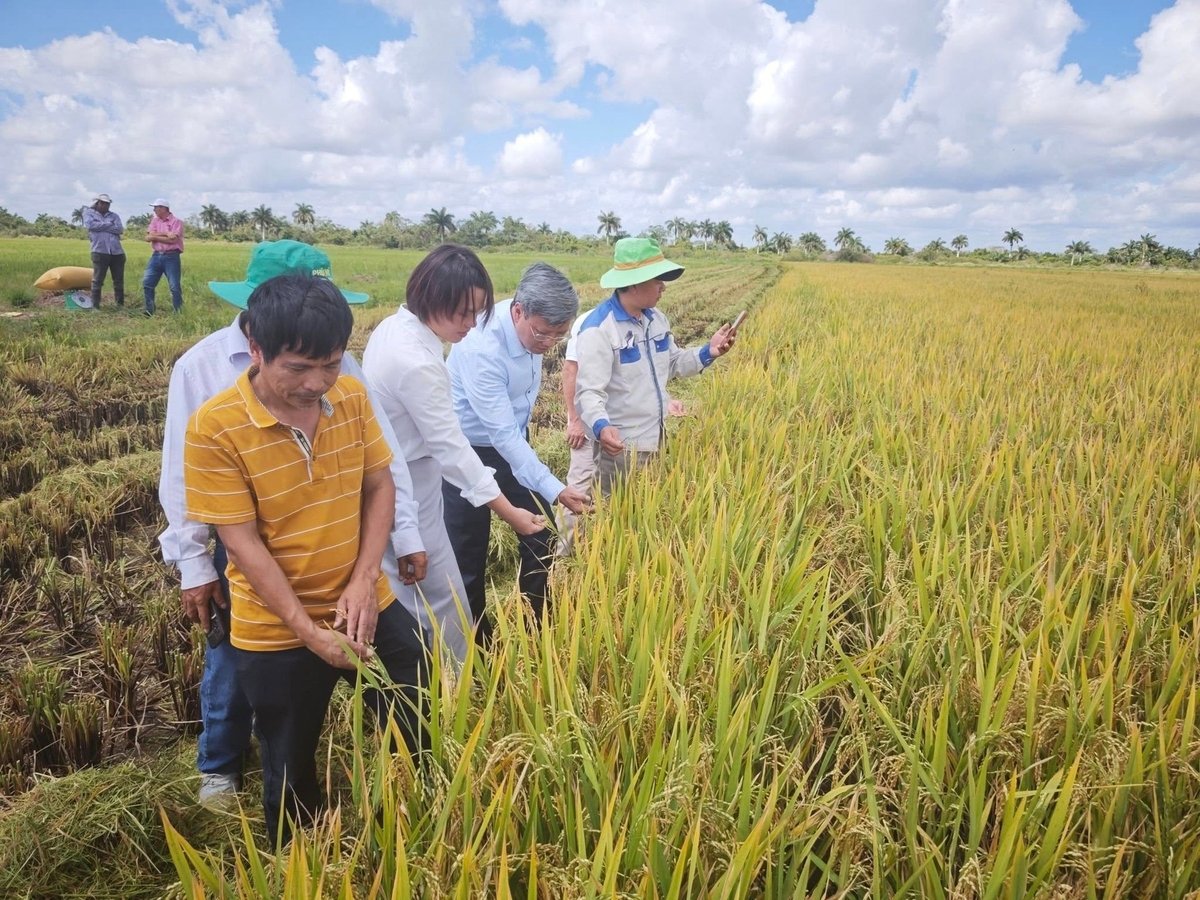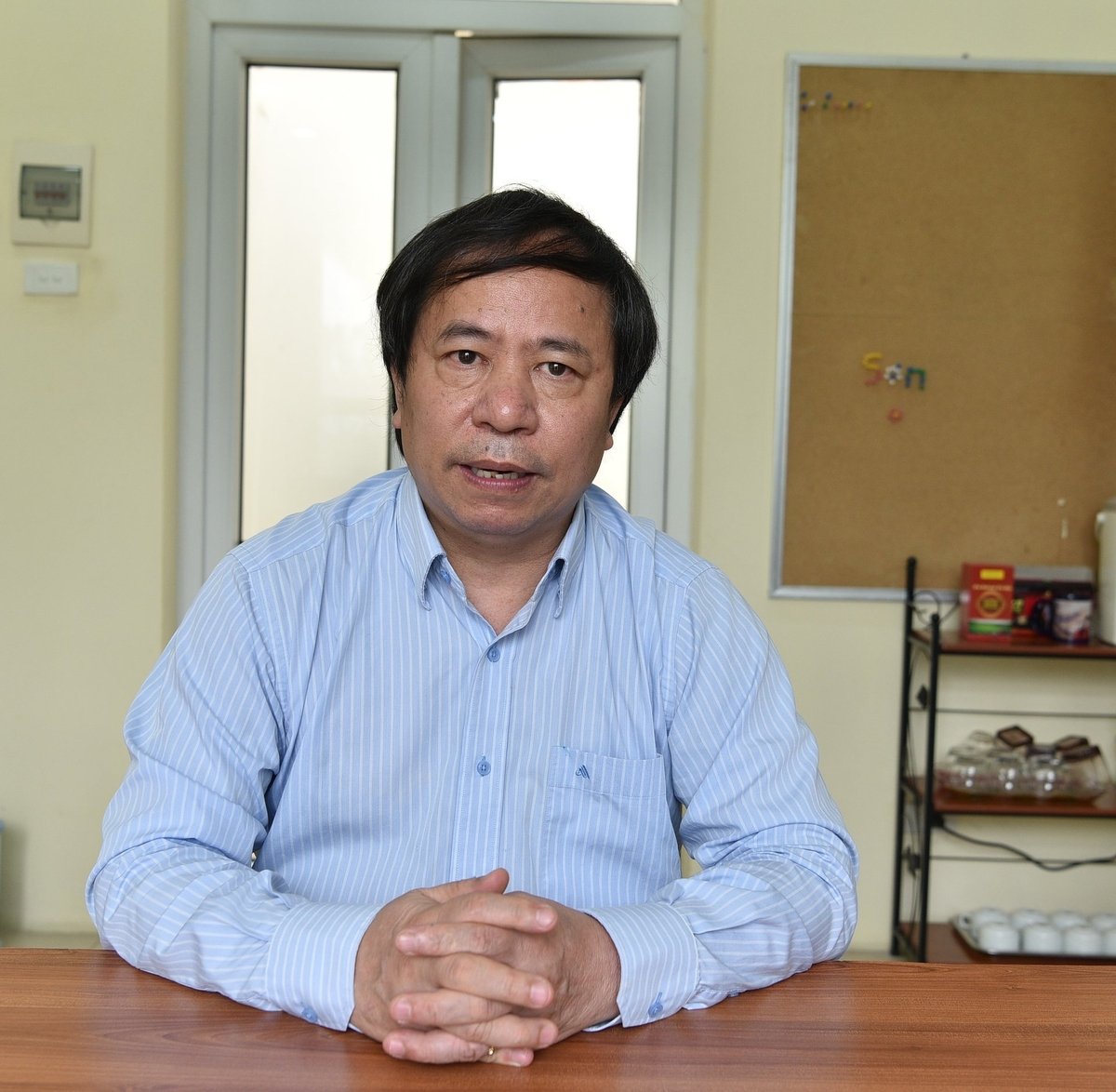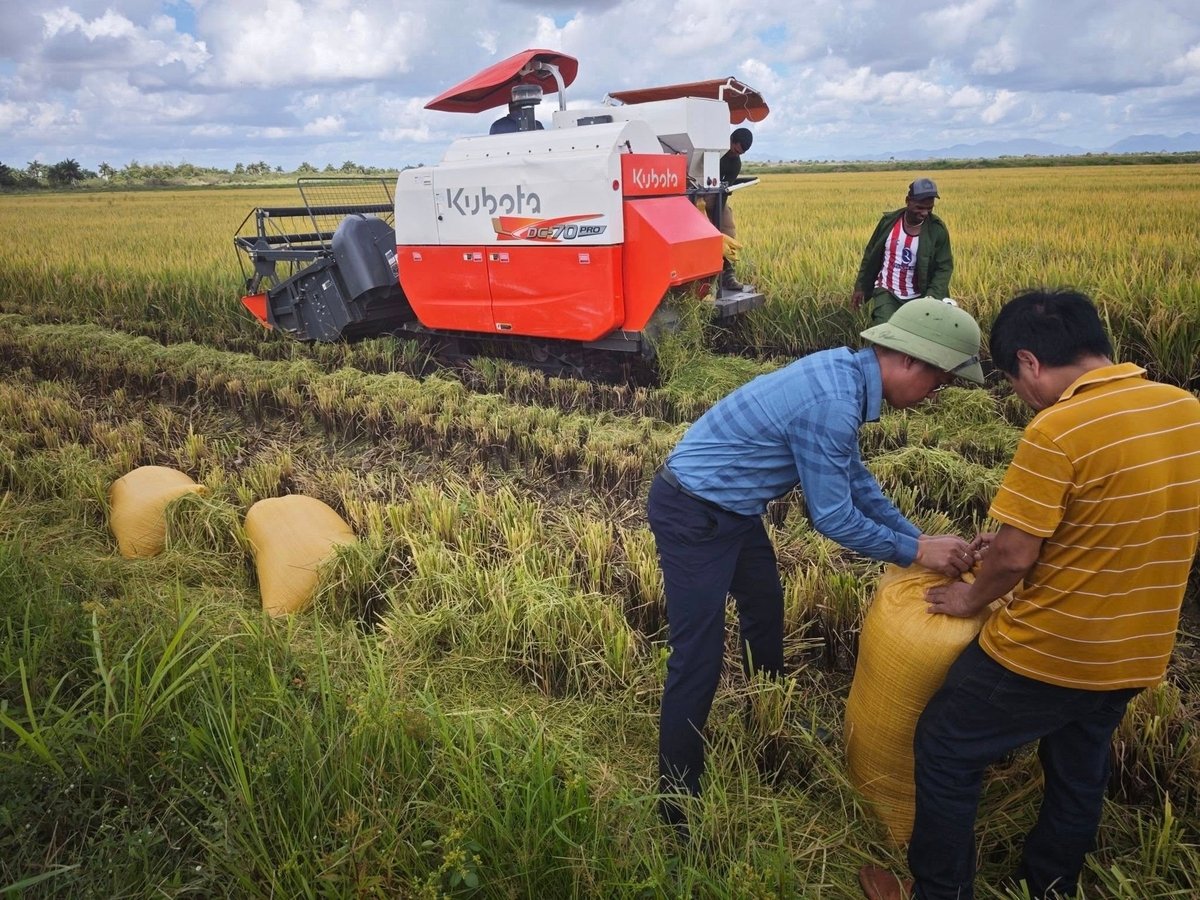May 25, 2025 | 20:49 GMT +7
May 25, 2025 | 20:49 GMT +7
Hotline: 0913.378.918
May 25, 2025 | 20:49 GMT +7
Hotline: 0913.378.918

Rice harvest in Cuba. Photo: Vietnam Embassy in Cuba.
The Ministry of Agriculture and Rural Development (now the Ministry of Agriculture and Environment) has been assigned by the Government to lead the Vietnam-Cuba cooperation project on enhancing rice production, gradually ensuring food security in Cuba for the 2025-2027 period. This initiative aims to further solidify bilateral cooperation. Unlike previous phases of the project, this time the focus will be on strengthening business-to-business collaboration. Cuba has expressed its readiness to lease land to Vietnamese enterprises for rice cultivation. AgriVMA, a pioneering Vietnamese company, has taken the lead by leasing 1,000 hectares of land in Cuba to cultivate the three-line hybrid rice variety CT16, developed by Associate Professor Dr. Nguyen Thi Tram from the Vietnam National University of Agriculture (VNUA).
The Facebook page of the Vietnamese Embassy in Cuba reported: "On the morning of March 5, 2025, Vietnamese Ambassador to Cuba Le Quang Long held a working session with the leadership of AgriVMA Co., Ltd. and witnessed the harvest of the first rice crop grown by AgriVMA in Los Palacios District, Pinar del Río Province."
Impressed by the visible results in AgriVMA's rice fields, the Ambassador expressed his satisfaction with the quality and yield of the project compared to other rice fields in the province. He confidently stated that, with Vietnam’s experience and capabilities in rice cultivation, the project opens up promising prospects for high-yield rice production in Cuba.
Witnessing firsthand the harvest yield of AgriVMA's first rice crop, which reached 7.5-8 tons per hectare, the Ambassador urged AgriVMA to continue researching and expanding its rice production investment project in Cuba. He also encouraged the company to provide agricultural equipment, technical support, and farming materials to help local farmers participate in production, contributing to Cuba's food self-sufficiency.

Weighing rice after harvest. Photo: Vietnam Embassy in Cuba.
The Vietnamese Ambassador highly appreciated the efforts and capabilities of Vietnamese enterprises in promoting and implementing new initiatives and models to improve productivity and crop quality, contributing to Cuba’s goal of self-sufficient production and food security. At the same time, he acknowledged their ability to seize investment opportunities in a market that, despite many challenges, holds great potential for development. The interest and investment of Vietnamese businesses in the Cuban market, particularly in agriculture, also reflect their role and responsibility in fostering the special traditional brotherhood and friendship between Vietnam and Cuba - especially at a time when Cuba is facing significant economic and social difficulties.
The AgriVMA company is a Vietnamese enterprise investing in animal feed production and agriculture in Cuba, carrying out this initiative. Agriculture is a priority sector for Cuba as part of its efforts to implement the "Economic and Social Development Strategy until 2030."
Vietnam is currently the leading investor from the Asia-Pacific region in Cuba, with seven projects spanning various sectors, including industrial park infrastructure, building materials production, detergent manufacturing, diapers and sanitary products, solar energy, animal feed production, and rice cultivation. The success of Vietnamese enterprises already investing in Cuba will serve as a significant driving force to attract more Vietnamese businesses to invest in the country in the future.
The first 16 hectares of rice cultivated by AgriVMA have been harvested, yielding results beyond expectations, as the productivity is significantly higher compared to Cuba’s traditional farming methods, which only achieve 3-4 tons per hectare.

Mr. Nguyen Hong Son - Director of the Vietnam Academy of Agricultural Sciences. Photo: Duong Dinh Tuong.
Mr. Nguyen Hong Son, Director of the Vietnam Academy of Agricultural Sciences (VAAS), stated that the Vietnam - Cuba rice production cooperation project aims to enhance both infrastructure and technical capacity. The goal is to reach 200,000 hectares of cultivated land with an average yield of 5 tons per hectare, producing approximately 1 million tons of paddy and 650,000 - 700,000 tons of rice, which are enough for Cuba to achieve food self-sufficiency. In terms of infrastructure, including transportation, irrigation, and land conditions, Cuba is fully capable of producing two rice crops per year. In some areas with sufficient water resources, even three crops per year are possible.
In terms of human resources, Vietnam has sent hundreds of experts to guide state farms and individual farmers. Additionally, Vietnam has assisted Cuba in establishing an agricultural extension system from the central level to the provinces, providing both personnel and necessary equipment, including communication tools.
Vietnam has also introduced a selection of rice varieties to Cuba, from which three high-quality varieties have been identified. Among them, OM 8017 has been successfully expanded to thousands of hectares at the household farming level, serving as a crucial foundation for improving rice productivity.
The fundamental goals of the cooperation project supported by Vietnam for Cuba have been relatively well achieved. In general, Cuba has favorable conditions for rice production, but achieving food self-sufficiency depends on the availability of essential inputs such as raw materials, fuel, fertilizers, and plant protection products. However, under the current embargo, Cuba faces significant challenges due to financial constraints and difficulties in procurement and transportation.

Bagging rice after harvest. Photo: Vietnam Embassy in Cuba.
In Phase 5 of the Vietnam - Cuba cooperation rice production project, both countries developed a rice production strategy and a strategic plan for irrigation systems in concentrated rice-growing areas. Vietnam has proposed various solutions, including mobilizing resources from both the state and the private sector (enterprises and farmers) to increase labor productivity, similar to the 'Khoán 10' policy implemented in Vietnam in the past. Additionally, efforts are being made to establish input and output markets for rice to maximize the efficient use of land potential.
The issue now is no longer technical but towards policy. In the rice production strategy that Vietnam has proposed for Cuba, attracting both domestic and foreign enterprises hold a crucial part. At this stage, the focus should not be on technical support but on implementation and engaging businesses in the process.
Results of the Vietnam - Cuba Cooperation Project on rice production (2019-2025):
Agricultural extension officers have been trained, and an extension system has been established, including a National Center and 13 regional stations. A total of 2,992 workshops, conferences, and training sessions have been organized for technicians and producers in Cuba, with 27,268 participants.
Vietnam has sent 99 experts and interpreters to Cuba to provide technical guidance and support in developing rice production models. Additionally, 30 Cuban officials have been trained and exchanged experiences in rice seed production systems, seed testing, and plant quarantine, while 10 Cuban officials have been trained in rice breeding in Vietnam.
Support has also been provided for infrastructure development and rice production under key models, including:
+ Super elite rice seed production model: Implemented on a 31-hectare scale, achieving 156.8% of the project target (20 ha), with an average yield of 5.93 tons/ha and a total output of 186 tons.
+ Elite rice seed production model: Implemented on a 746-hectare scale, reaching 266.7% of the project target, with an average yield of 5.60 tons/ha and a total output of 4,178 tons.
+ Certified rice seed production model: Implemented on a 1,571-hectare scale, achieving 157.2% of the project target, with an average yield of 4.94 tons/ha and a total output of 7,769 tons.
Translated by Kieu Chi
/2025/05/25/4127-3-073637_820.jpg)
(VAN) Thanks to the promotion from an FAO-implemented project, vegetable production in greenhouses in Moc Chau has seen strong development, from 1.5 hectares in 2021 to nearly 50 hectares in 2024.

(VAN) FAO has recently supported USD 140,000 to implement the project 'Risk mitigation human-animal interface risks through disease control initiatives in pig farming.'

(VAN) The People's Committee of Tra Vinh province has approved an adjustment to the investment policy for the Green Hydrogen Plant project, increasing its area to approximately 52.76 hectares.
![Reducing emissions from rice fields: [2] Farmers’ commitment to the soil](https://t.ex-cdn.com/nongnghiepmoitruong.vn/608w/files/news/2025/05/05/dsc08881jpg-nongnghiep-140632.jpg)
(VAN) Clean rice cultivation model in Thuong Tan commune, Bac Tan Uyen district, is assisting local residents in achieving sustainable agriculture by substantially reducing costs, increasing productivity, and protecting the environment.

(VAN) At the conference to disseminate Resolution No. 68, AgriS introduced its digital agricultural ecosystem and reaffirmed its commitment to accompanying the Government in promoting private sector development and sustainable agriculture.

(VAN) 'Blue Ocean - Blue Foods' initiative is designed to restore marine ecosystems and establish sustainable livelihoods for local communities by cultivating a minimum of 1,000 hectares of cottonii seaweed in the first three years.
/2025/05/21/4642-3-112707_603.jpg)
(VAN) The V-SCOPE project has made direct contributions to three out of six pillars of the Comprehensive Strategic Partnership between Vietnam and Australia.